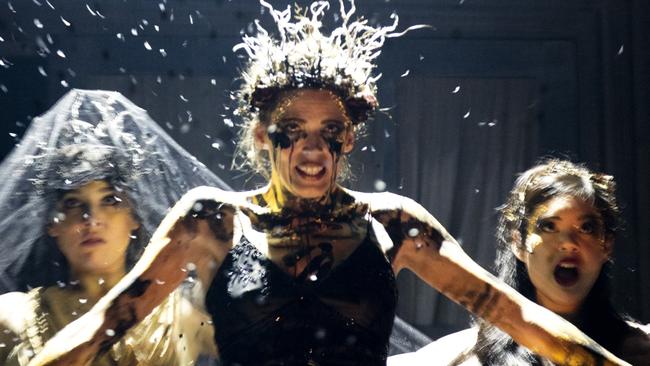Pinchgut Opera puts emotional concerns to fore in Haydn’s Armida
The challenge for any Pinchgut production is how to best deal with the confines of the City Recital Hall stage.

Haydn’s Armida (1784) is Pinchgut Opera’s second foray into this composer’s operatic oeuvre after its 2010 production of L’anima del filosofo. Armida was a hit in its day, receiving 54 performances at Haydn’s home base of Eszterhaza and was staged in Vienna, Turin and Budapest. It then fell into obscurity until the late 20th century.
The composer considered Armida his finest opera. Conductor Antony Walker and the Orchestra of the Antipodes’ polished, well-balanced accompaniment vindicated Haydn’s judgment. Their shrewd tempo and dynamic control, incisive attack and zestful rhythms generated energy and momentum while sustaining dramatic tension.
The challenge for any Pinchgut production is how to deal with the confines of the City Recital Hall stage. Director Crystal Manich and her team overcame the venue’s spatial limitations by going up. Armida’s lair hovered menacingly above the stage, linked by a staircase to a despoiled post-battlefield-like landscape below littered with dead trees, damaged walls and up-ended chairs.
In her director’s note, Manich said she aimed to create a sense of timelessness. Set designer Alicia Clements’s elaborate staging and Christie Milton’s intriguing ancient Rome meets 1930s art deco fashion-inspired costumes helped establish this.
Manich was mainly concerned with exploring the protagonists’ inner worlds rather than delving into other issues such as power, politics and war. Her light directorial touch ensured she succeeded, keeping us riveted to the emotional concerns of the characters.
Soprano Rachelle Durkin gave a magnificent performance as Armida. Sustaining focused clarity and excellent dynamic control, she astutely varied her timbre to suit the needs of the moment: pure and silvery in some places, richly coloured in others. Her spectacular coloratura display passages and smoothly shaped lyrical sections were equally impressive.
Durkin also captured her character’s violently contrasting emotional state, seamlessly alternating between tender-hearted lover, sweetly seductive temptress and ferociously vengeful woman scorned.
As Rinaldo, Swedish tenor Leif Aruhn-Solen impressed with his agility, timbral warmth and resounding power. His only vocal weakness was a slightly thin bottom register. Where he totally matched Durkin was in his capacity to convey emotional conflict. In the wrong hands, Rinaldo’s sudden changes of heart could seem implausible. Aruhn-Solen’s expressive intensity made them convincing.
Though baritone Christopher Richardson captured the devious, manipulative nature of the bad-guy Saracen king Idreno, his singing periodically sounded unsteady and ill-focused.
Tenors Jacob Lawrence (Ubaldo) and Brenton Spiteri (Clotarco) delivered strongly sung performances but soprano Janet Todd outshone her supporting castmates. Her radiant, fresh-voiced portrayal of Zelmira compelled one’s attention whenever she appeared.
Tickets: $40-$150. Bookings: (02) 8256 2222 or online. Duration: 2hr 40 min, including interval. Until June 28.


